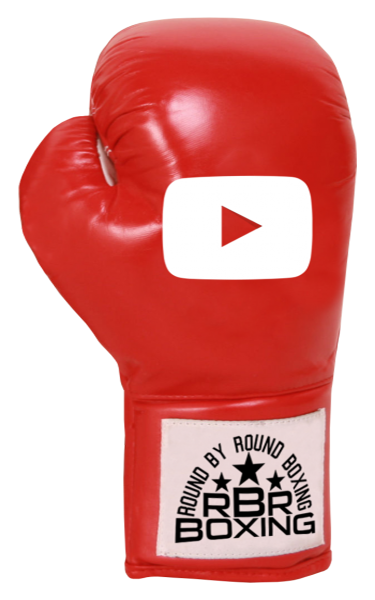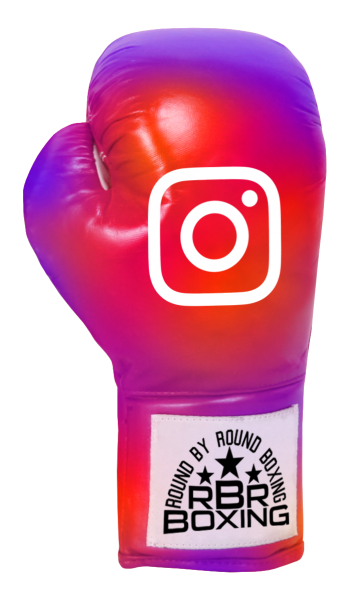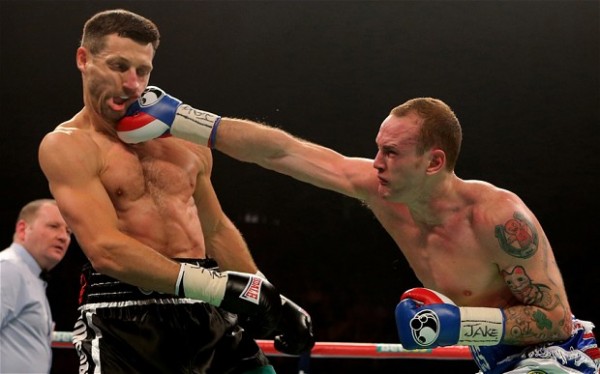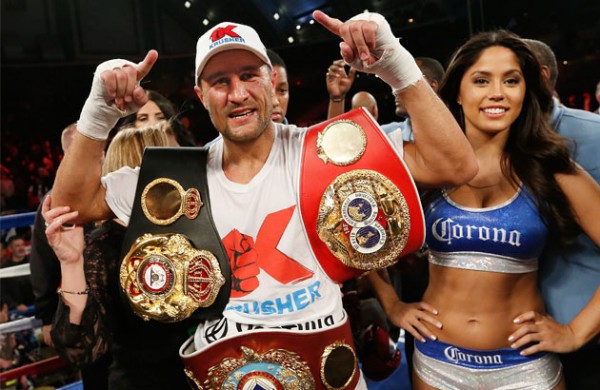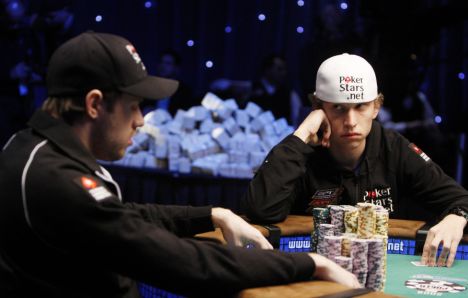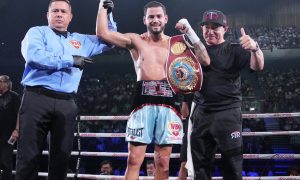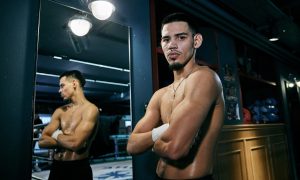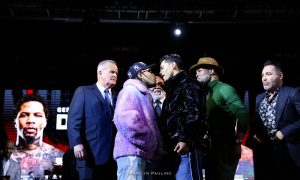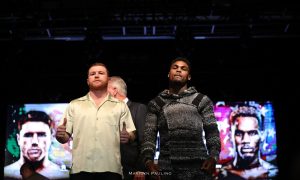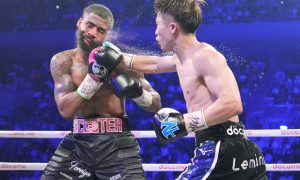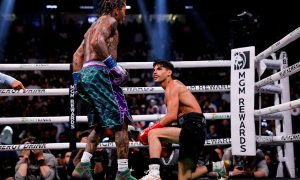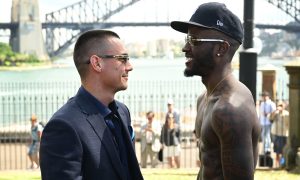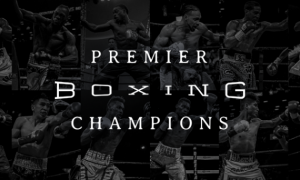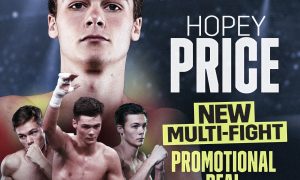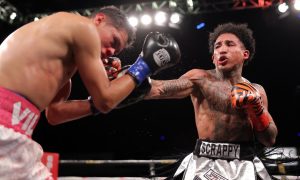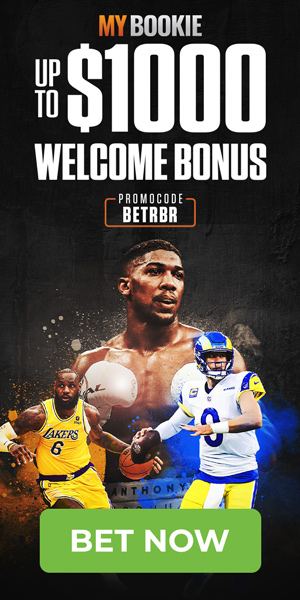Beyond The Punch: Why the Brain Delivers the Real Knockout
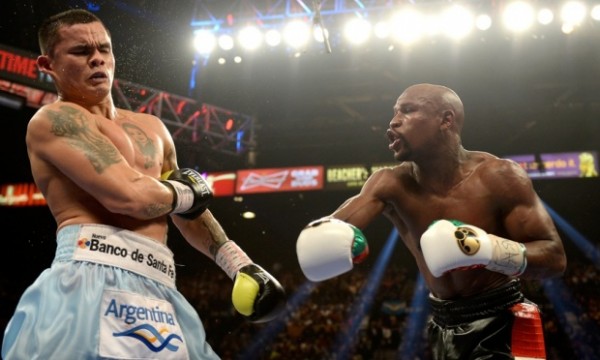 Photo by Harry How/Getty Images
Photo by Harry How/Getty Images
It takes an awful lot to be a professional boxer – more than mere mortals like us will ever have. It takes talent, for starters. Dedication. Discipline. The Desire and determination to push your body to the limit every day so when you walk into the ring, you’re well and truly ready to rumble. Although, of course, you already know that.
But what goes on inside the brain is something else: an intelligence in which only world-class athletes have, and the ability to get under an opponent’s skin whether it be in the ring, in the media, or at the weigh-in. From the days of Ali to the modern day Mayweather, it’s a tactic that’s used endlessly, sometimes brashly, sometimes with all the sophistication of a game of poker.
You only have to look at the mental sparring between Floyd ‘Money’ Mayweather and Manny Pacquiao over the last few weeks to see that, and that fight hasn’t even been agreed on yet. Like a poker player at the table saying he’s got the best hand before going into a betting duel, it’s what Mayweather is doing now, except that hand is clenched.
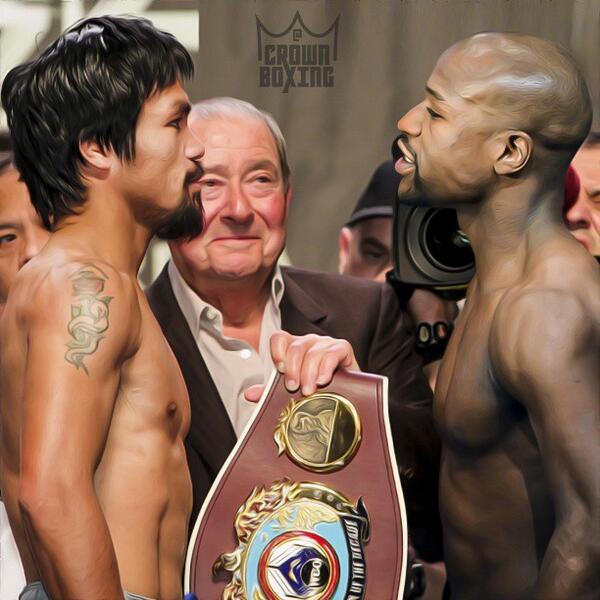 Photo edit by Crown Boxing
Photo edit by Crown Boxing
Of course, it goes way beyond trash talk – and during a training camp, what a boxer hears from psychologists is just as important as what his trainer is saying to him in the ring.
In fact, Cus D’Amato, a man who trained the likes of Floyd Patterson, Jose Torres, and Mike Tyson, once said that fights were both won and lost in the brain.
Confidence Is Key
It’s no secret that confidence is a major factor when heading into the ring. If a fighter hears the first bell not believing in himself then he’s going to end up on the canvas. Confidence provides rational thinking, not the panic of blind swinging or sitting in the middle of the ring with a tight defense taking shot after shot.
It may all seem bravado, but the likes of Prince Naseem saying he’s the best featherweight in the world or Ali claiming he’s “the greatest” is genuine belief. And it transformed them into exactly what they said they were.
But of course to be confident, you have to be instilled in that belief.
Sparring To Success
It’s the closest form of training to a fight – in fact, sparring itself has created plenty of rivals in the past including George Groves and Carl Froch who went head to head in two epic encounters in late 2013 and 2014.
Whether it’s a young gun training for his first title shot or an experienced pro defending the WBO Heavyweight Championship for the fifth time, it’s the ideal chance to practice concentration and reigning in emotion, as well as the tough physical workout.
Particularly in young boxers, there is a tendency to retaliate when hurt, leaving them susceptible to another attack and essentially a knockout blow. Elsewhere in sports you wouldn’t find top poker pro Daniel Negreanu going on the attack simply because he lost a hand, nor would a cricketer change his bowling tactics simply because he got hit for six. Rather than hitting back, it’s all about amending positioning and tactics, asking the question, “why was I hit there, and how can I avoid it?”
Identifying The Weakness
It’s all about identifying the weakness.
“Poker, a day to learn and a lifetime to master,” pro Robert Williamson III once said, and for boxing that could stretch way beyond. The two sports certainly walk side by side when it comes to facing opposition. Each person you’re face to face with is entirely different, whether a southpaw, orthodox, an aggressive better, or having a loose passive style; identifying an opponent’s tendencies, and your own, is key.
So training your mind before competition is vital. Often you’ll see a poker star taking advantage of an opponent’s playing style, beckoning them in like Tyson before delivering a devastating blow. It’s what the top pros are excellent at, knowing everything about them from the little twitch in their next when they’re bluffing, to looking directly at their chips when they’ve got a winning hand.
The recent fight between Sergey Kovalev and Bernard Hopkins proved that, with the Russian delivering a series of body shots to wear out the 50-year-old in the later rounds, picking up a unanimous decision.
And that will have all come from identifying where the former light heavyweight would struggle, and then choosing the right sparring partner to have the confidence to implement it.
Keeping The Concentration
For most boxers, they enter the ring in peak physical condition. Dedicating months away from family, friends, junk food, and alcohol, they engage in 5am starts, six mile runs, hundreds of crunches, and plenty of work on the bags, not only working wonders for physique, but concentration levels too.
Four-time world super middleweight champion Carl Froch’s regime involves track sprints, hill climbs, cycling, and long runs, not only increasing his anaerobic capacity but his concentration levels, allowing him to focus on breathing as well as feet striking the ground, which transports across into boxing when punching. And it works across all sports.
Take Vanessa Rousso for example. She’s has accumulated over $3.5 million in poker earnings, and claims that a healthy routine (including running) is an integral part of her day-to-day routine.
But additionally, part of her regime involves eating properly. Boxers will cram with protein and super foods, and you’d be surprised to hear that on the green velvet, it’s exactly the same. She wrote in a blog for PokerStars, “If I overload on carbohydrates during a tournament I tend to be fatigued from what has been described as ‘carb crash.’ Therefore, I try to eat lean proteins, vegetables, and maybe some whole grains like oatmeal on the morning before I play.”
It’s all about being in the best possible place when it comes to fight night. When the likes of David Haye or Victor Ortiz say they’ve had a really good training camp, it combines all these elements, giving them a huge confidence boost for when they’re touching gloves at the beginning of round one.
It goes way beyond being able to punch hard; if one doesn’t have the mindset to last 12 rounds, or identify where he can take advantage of an opponent, then he won’t make it very far. Whether you’re dealt a full house or a brutal upper cut, it’s having the strength to react in the right way which will carry you to stardom. Ask Mayweather or Negreanu.



